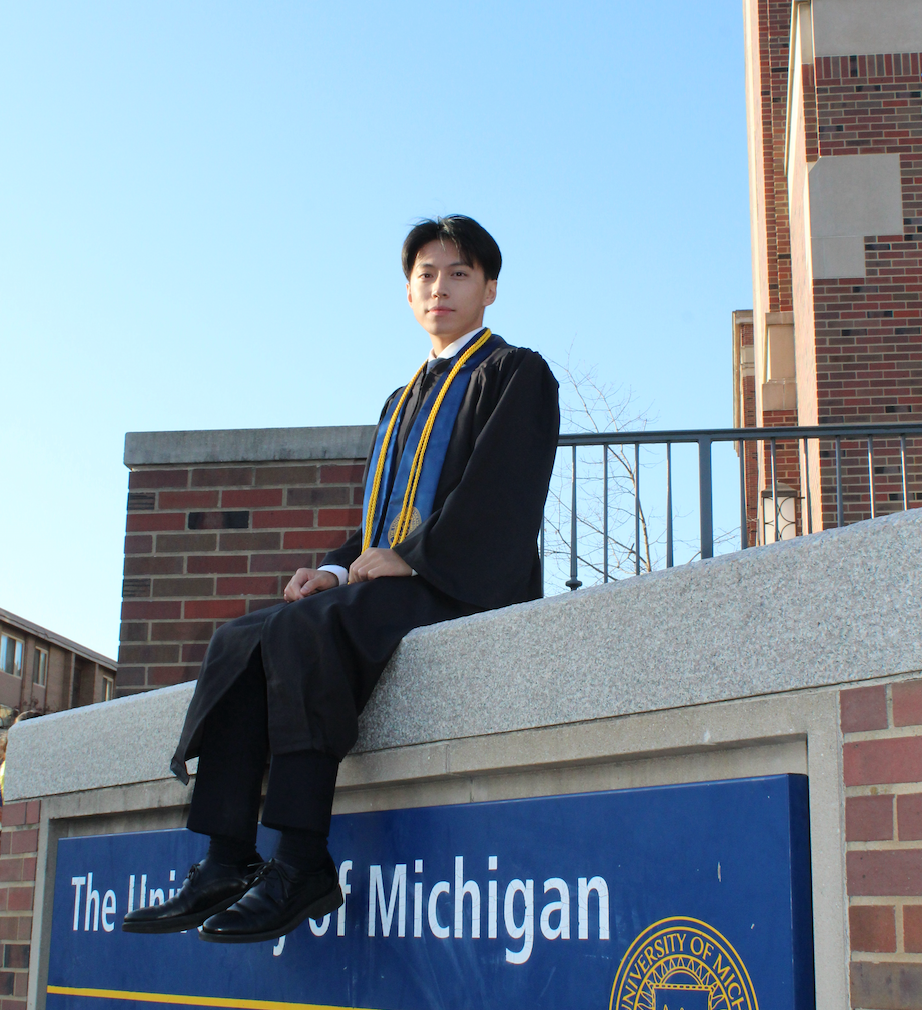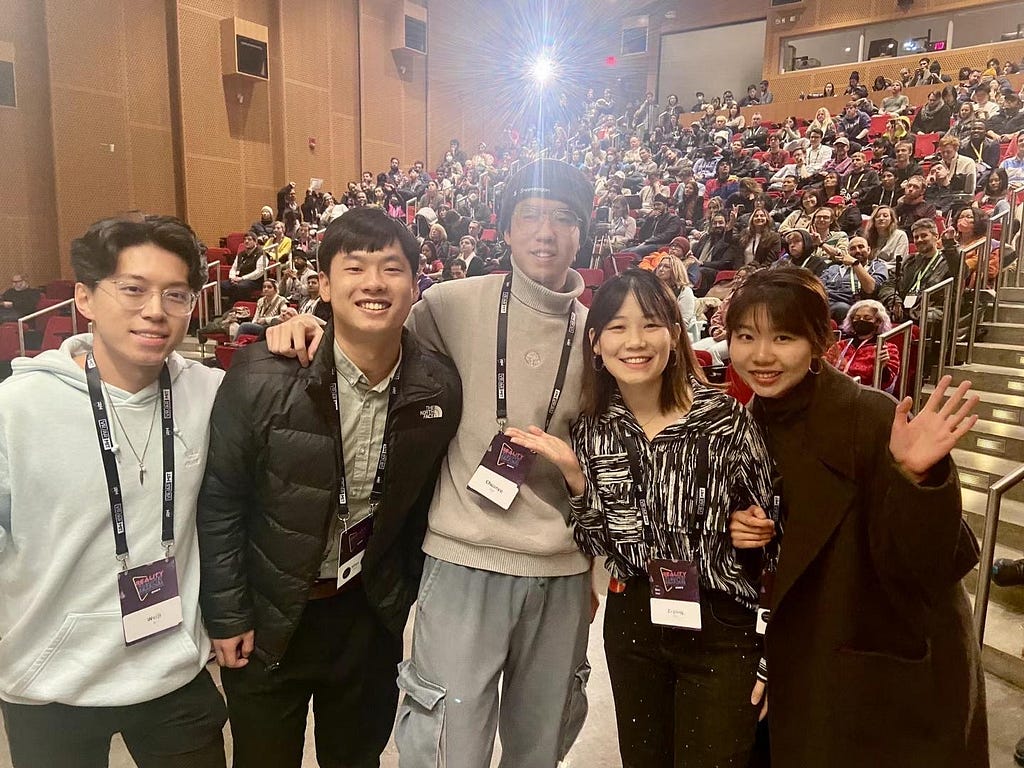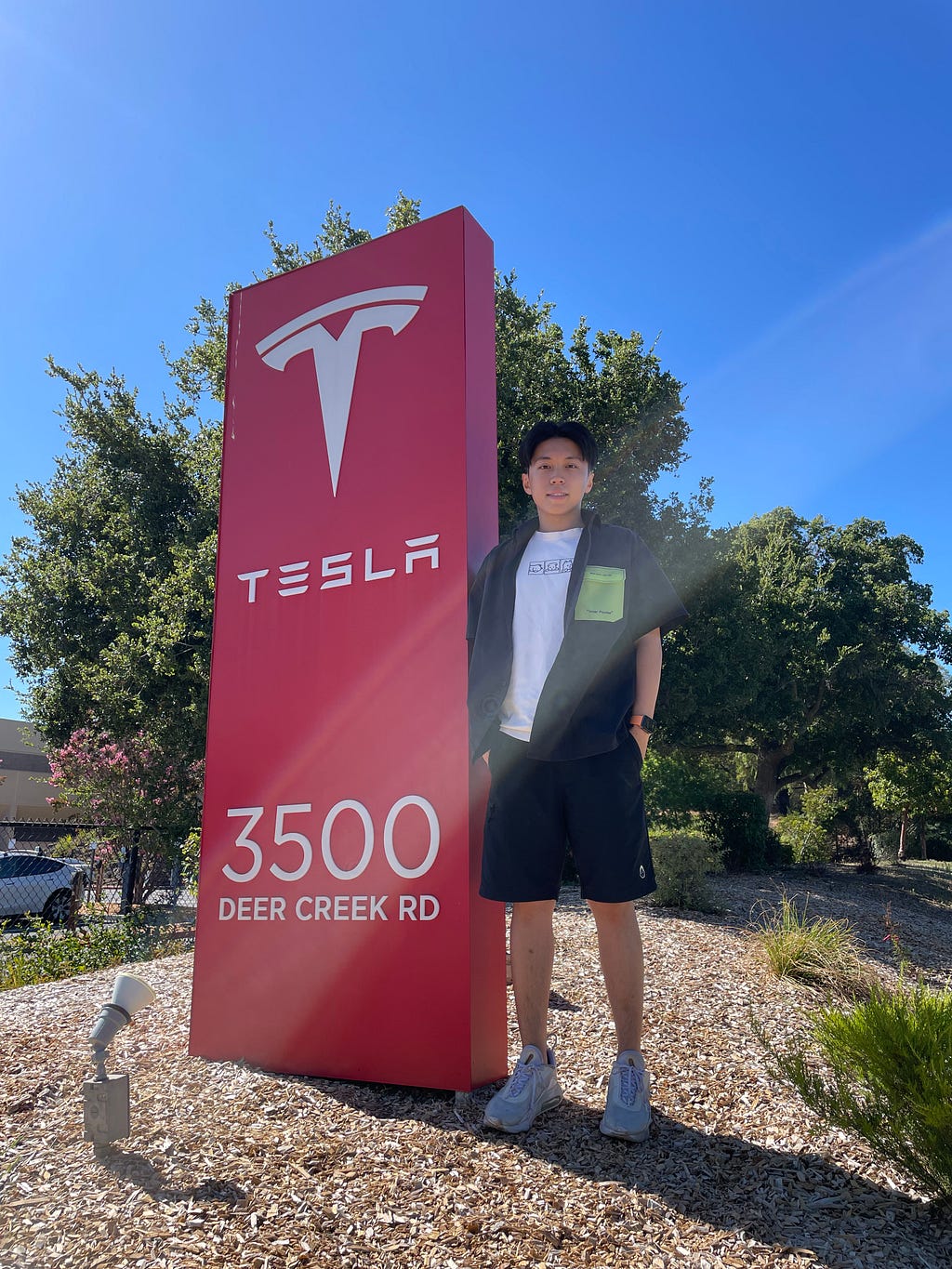Victor Li, MEng ’23 (EECS): “I am committed to creating products that can make a difference in people’s lives.”
On accessible technology, the power of new perspectives, and creating products with positive impacts
Early on in his life, Victor Li realized that computer science would enable him to make an impact in people’s lives, whether big or small. He started by building a librarian-free library system for his high school and took that ambition all the way to UC Berkeley’s Master of Engineering program, studying electrical engineering and computer science with a concentration in data science & systems. Having recognized the importance of data in real-world software engineering, Victor is eager to explore new technologies that integrate data into our daily lives. This is his story.
Would you mind telling us a bit about yourself?
I grew up in China and came to the United States for my undergraduate studies when I was 18 years old. I completed my undergraduate degree at the University of Michigan last year and immediately joined the MEng program at Berkeley. After I graduate from Berkeley in May 2023, I will start work at Tesla as a Software Engineer in the Bay Area. In my new role, I will be focusing on autopilot and navigation technology. My passion for computer science lies in creating products that make a meaningful impact on people’s lives. I particularly enjoy participating in hackathons because I find it fulfilling to turn a new idea into a tangible product in a short period of time. For instance, earlier this year, my team “Cal XR” won the “Future Constructor” track at the MIT Reality Hack by developing a virtual reality (VR) application that aids crime scene investigations. Additionally, I won first prize at the Michigan Makeathon for creating a smart water bottle that can track daily water consumption.
What led you to apply and join the Berkeley MEng program?
Having spent four years as an undergraduate on the East Coast, I am eager to explore the West Coast and its unique opportunities. The Bay Area’s location and proximity to a diverse range of tech companies make it an attractive place to pursue a career. Additionally, the world-renowned faculty at UC Berkeley drew me in, as I am excited to learn from professors who have developed state-of-the-art technologies in their respective fields.Berkeley’s vivid atmosphere for entrepreneurship, including its various clubs, decals, and MEng’s leadership courses at Fung Institute, make it a world-class destination for those looking to develop their leadership skills and launch their own ventures.
Can you tell us a bit about your capstone project, “A modern scalable AI/ML-facilitating data pipeline for spectrum,” including why you chose it and what you hope to accomplish?
We are developing an end-to-end data pipeline that collects, stores, visualizes, and analyzes wireless spectrum data on a large scale. Our pipeline employs a distributed architecture that is optimized for efficiency and speed, powered by NATS.IO for data transmission, Elasticsearch for AI/ML integration, and Prometheus for status monitoring in an AWS cloud-based environment. The intricacy and ever-evolving nature of wireless spectrum data necessitate a customized pipeline capable of handling the tremendous volume of data generated each second while ensuring the highest possible data quality and reliability. Our project aims to make this data more accessible, unlocking new insights and opportunities for innovation in wireless communication. I was drawn to this project because of my expertise in backend development and machine learning algorithms, which I believed would enable me to make meaningful contributions. Additionally, prior to joining this project, I had limited experience with data pipelines and AWS and saw this as an opportunity to broaden my skill set in these areas, which would be valuable for my future software development career.
What in particular interest you about human-computer interaction, natural language processing and artificial intelligence?
Human-computer interaction (HCI), natural language processing (NLP), and artificial intelligence (AI) are interconnected fields that are critical for developing intelligent systems. HCI focuses on creating user-friendly interfaces and experiences that allow humans to communicate with computers effectively. NLP is a subfield of AI that is concerned with how computers can understand, interpret, and generate human language. It deals with language understanding, language generation, and language translation. NLP can enhance HCI by enabling users to interact with computers through natural language, such as voice assistants and chatbots. By combining these fields, I wish to build systems that understand and respond to natural language, provide personalized and intelligent experiences, and automate repetitive tasks, making technology more accessible and beneficial to everyone.What are your professional goals?
In the short-term, my goal is to leverage my software engineering skills to create products that can significantly enhance people’s lives. I aspire to work on projects that can automate mundane tasks, streamline complicated processes, and solve everyday problems that people face.I believe that the intersection of technology and human-centric design can lead to impactful solutions that can improve our daily lives in significant ways.Looking towards the long-term, I envision myself as an entrepreneur, striving to establish a company that creates products with a positive impact on society. I aim to channel my passion for innovation and creativity into a start-up that can address real-world problems and inspire positive change. I am committed to creating products that can make a difference in people’s lives, no matter how small.
What are some of your hobbies/passions?
I have always had a passion for travel and exploring different parts of the world. So far, I have been fortunate enough to visit 20 countries and experience unique cultures and ways of life. One of the things that excites me about traveling is meeting new people and seeing the world from their perspective. Learning about how different countries and cities operate is also very intriguing to me, and it has inspired me to pursue a career that can have a positive impact on people’s lives, no matter where they are in the world.
Favorite quote:
The best is yet to come.Connect with Victor. Edited by Veronica Roseborough.
Victor Li, MEng ’23 (EECS): “I am committed to creating products that can make a difference in… was originally published in Berkeley Master of Engineering on Medium, where people are continuing the conversation by highlighting and responding to this story.


